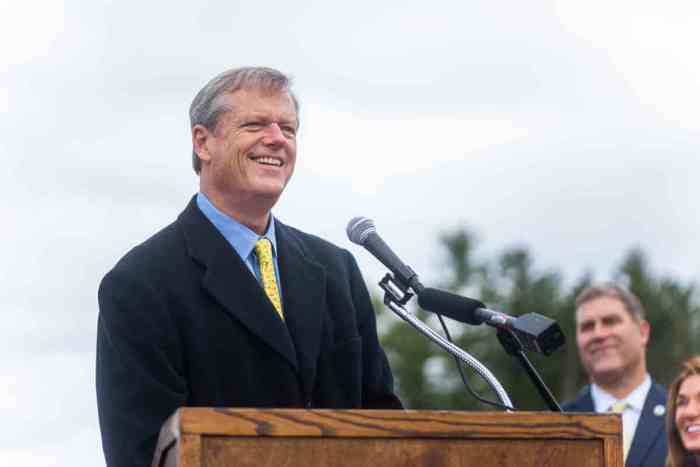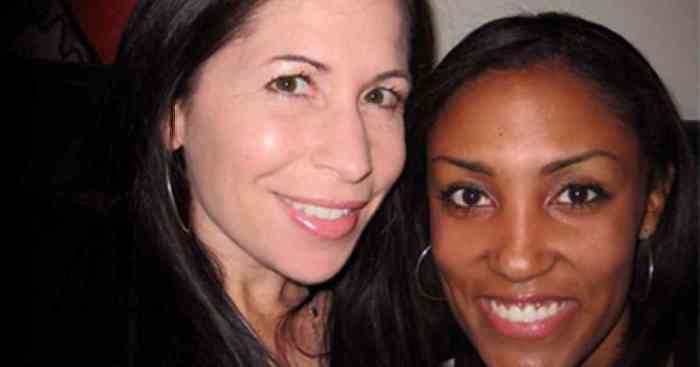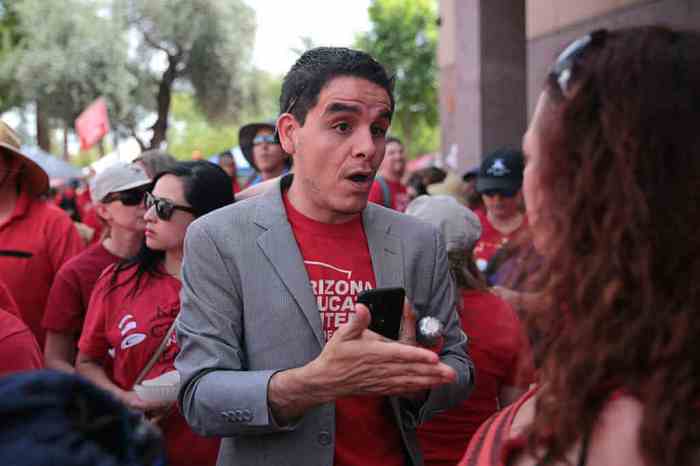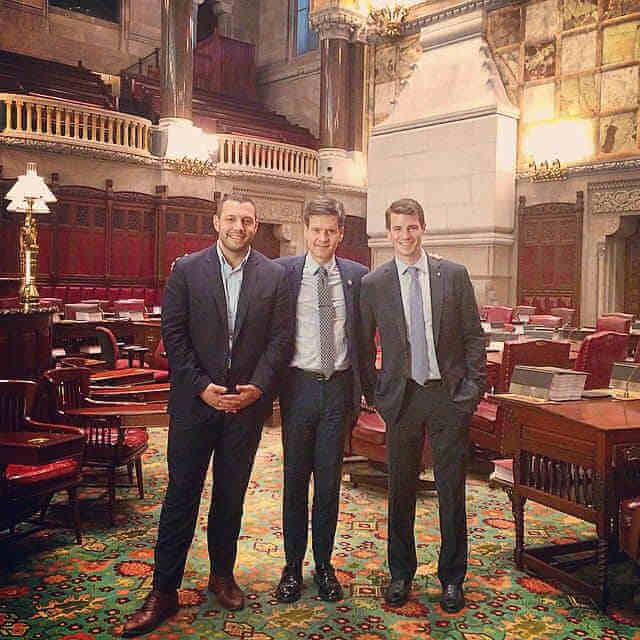Since the US Supreme Court struck down the Defense of Marriage Act’s denial of federal recognition to same-sex marriages, every judge in federal and state courts ruling on motions for summary judgment has concluded that bans on performing or recognizing same-sex marriages violate, as a matter of law, the US Constitution’s 14th Amendment.
In that sense, there is really nothing new about US District Judge Arenda L. Wright Allen’s February 13 decision finding Virginia’s ban on same-sex marriage unconstitutional. The ruling falls within what is now the mainstream of a growing body of trial court decisions issued by judges of just about every political stripe.
On the other hand, each of the decisions issued so far –– by federal judges in Ohio, Utah, Oklahoma, Kentucky, and now Virginia – presents its own particular perspective on the issue and a unique brand of eloquence.
Federal judge explicitly links plaintiffs’ case to the struggles against miscegenation laws and slavery
Wright Allen, appointed to the bench by President Barack Obama and unanimously confirmed by the Senate in 2011, prefaces her decision with a lengthy recent quote from Mildred Loving, who with her husband Richard won the 1967 Supreme Court case against Virginia’s ban on interracial marriage. The high court ruled that the miscegenation law was an unconstitutional interference on the right of individuals to marry the partner of their choice –– not only because it enacted racial discrimination but also because of marriage’s fundamental role in society.
“I believe all Americans, no matter their race, no matter their sex, no matter their sexual orientation, should have that same freedom to marry,” Loving said on the 40th anniversary of her victory. “Government has no business imposing some people’s religious beliefs over others… I support the freedom to marry for all. That’s what Loving (the case), and loving, are all about.”
Wright Allen also quoted a letter Abraham Lincoln wrote as he contemplated his 1860 run for president, stating, regarding the case against slavery, “It can not have failed to strike you that these men ask for just the same thing – fairness, and fairness only. This, so far as in my power, they, and all others, shall have.” The gay marriage plaintiffs, Wright Allen wrote, “and the children too, whose voices join in noble harmony with Plaintiffs today, also ask for fairness, and fairness only. This, so far as it is in this Court’s power, they and all others shall have.”
Represented by Ted Olson, David Boies, and the American Foundation for Equal Rights (AFER), who litigated the Proposition 8 case, the two plaintiff couples are challenging a constitutional amendment adopted in 2006 as well as a law forbidding marriage by same-sex couples. Timothy Bostic and Tony London were denied a marriage license by the clerk in Norfolk, while Carol Schall and Mary Townley were married in California in 2008 but Virginia refuses to recognize that marriage.
As the case headed to court, the defendants in the case were the state’s registrar of vital records as well as the Norfolk Circuit Court clerk, whose office denied Bostic and London a marriage license. The Prince William County Circuit Court clerk was allowed to intervene as a defendant. When Democrat Terry McAuliffe took office last month, he and the new attorney general, Mark Herring, announced the state would no longer defend Virginia’s marriage ban, and the solicitor general joined the plaintiffs at a hearing several weeks ago to argue the policy was unconstitutional. The two clerks’ offices were left to defend the anti-gay ban and are represented by attorneys from Alliance Defending Freedom, a group that opposes marriage equality and other gay rights gains using religious liberty arguments.
As have other US district court judges –– as well as the Second Circuit Court of Appeals in its ruling on Edie Windsor’s challenge to DOMA that eventually prevailed at the Supreme Court –– Wright Allen dispensed with the defendants’ argument that the high court’s refusal in 1972 to hear a marriage case brought by two gay men from Minnesota, finding it did not present a “substantial federal question,” was binding on the court. “Doctrinal developments since” then, she wrote, compelled the conclusion that the Minnesota precedent no longer applied.
Focusing first on the question of whether the plaintiff couples were denied their due process rights, she concluded, in line with the Loving miscegenation ruling and subsequent cases, that the right to marry is a fundamental one that cannot be abridged by the state without a narrowly-tailored law justified by a compelling state interest. The fact that only now are gay couples able to marry in some states, she wrote, “fails to transform such a fundamental right into some ‘new’ creation. Plaintiffs ask for nothing more than to exercise a right that is enjoyed by the vast majority of Virginia’s adult citizens.”
Noting that same-sex couples have “the same capacity” as heterosexuals “to form, preserve, and celebrate loving, intimate, and lasting relationships,” Wright Allen wrote, “Such relationships are created through the exercise of sacred, personal choices — choices, like the choices made by every other citizen, that must be free from unwarranted government interference.”
Since the case involved a fundamental right, Wright Allen asserted, the defendants’ arguments must be examined using “strict scrutiny” to determine whether the marriage ban is a narrowly tailored solution meeting a compelling state interest. Assertions that limiting marriage to different-sex couples is demanded by tradition, the need to encourage “responsible procreation” by heterosexuals, or the goal of guaranteeing “optimal child rearing” in society all failed that scrutiny in the judge’s view. Her analysis followed along the same lines as other recent federal marriage rulings.
And, like other federal judges, Wright Allen used Supreme Court Justice Antonin Scalia’s words against him, drawing from his DOMA dissent, where he wrote that the majority’s conclusion was based on the view that the 1996 law “is motivated by ‘bare… desire to harm’ couples in same-sex marriages. How easy it is, indeed how inevitable, to reach the same conclusion with regard to state laws denying same-sex couples marital status.”
Wright Allen also rejected arguments based on Virginia’s sovereignty under federalism principles. Deferring to the judgment of the state’s voters and legislature, she wrote, “disregards the gravity of the ongoing significant harm being inflicted upon Virginia’s gay and lesbian citizens.”
Discriminating against same-sex couples regarding a fundamental right, the judge concluded, also violates their rights under the 14th Amendment’s Equal Protection Clause.
Wright Allen quoted from a famous equal protection ruling by the Supreme Court from 1938 in asserting that “there are reasonable grounds to suspect ‘prejudice against discrete and insular minorities which tends seriously to curtail the operation of those political processes ordinarily to be relied upon to protect minorities’” –– in the conduct, for example, of former Attorney General Ken Cuccinelli in trying to force state colleges and universities to roll back their gay rights protections. The judge concluded, however, that it was unnecessary to decide whether sexual orientation qualified as a “suspect classification,” which would also impose a higher burden on the state in justifying any discriminatory treatment, since the marriage ban could not even be defended as rational.
“Virginia’s Marriage Laws fail to display a rational relationship to a legitimate purpose,” she wrote, “and so must be viewed as constitutionally infirm under even the least onerous level of scrutiny.”
Ruling that Virginia must stop enforcing its marriage ban, Wright Allen, at the same time, acknowledged the Supreme Court had stayed a similar ruling regarding Utah’s ban in order to allow the state to appeal, so she stayed her order pending appeal to the Richmond-based Fourth Circuit Court of Appeals.
Unless that court acts with extraordinary speed, it is unlikely it would rule prior to the Ninth and Tenth Circuits acting on appeals regarding, respectively, a Nevada marriage equality lawsuit and the rulings in the Utah and Oklahoma cases.
Olson and Boies got involved in the Virginia case with the explicit goal of taking it to the Supreme Court, but as of now it seems more likely that the National Center for Lesbian Rights, which is now involved in the Utah case, or Lambda Legal, which represents plaintiffs in the Nevada case, may get there first.




































